Islamic Philosophy: Allāh as the Final Cause
One cannot properly explore the evolution of metaphysics and theology in Western civilization and its metamorphosis into science, without having some level of understanding of its development and evolution after the so-called fall of the Roman Empire through the Middle Ages, after which science clearly emerges as the dominant world view, eclipsing theology and religion which had dominated the intellectual landscape since the dawn of man. Furthermore, it is also clear that one cannot look at theological development during this time period without seeing it not only through the lens of Christianity, but also through Islam, the latter of which was a major force in the Western world not long after its introduction by its prophet Muḥammad in the 7th century up until modern times. Interestingly enough, once one starts to dig into this era of metaphysical and theological evolution, from an Islamic/Muslim perspective, it becomes clear that the early Muslim theologians and philosophers also leaned on Hellenic philosophy for their legitimacy and authority in much the same way that their Christian counterparts to the West had done some five centuries earlier, even going so far as to refer to Aristotle as the First Teacher” in some contexts.
As the stability of the Roman Empire broke down in the 5th century, marked most notably by the sacking of Rome by the Visigoths in 410 CE, a new center of influence and power emerges in the Eastern part of the Roman Empire with its capital in Byzantium, later renamed Constantinople and today called Istanbul in the modern nation of Turkey. The Byzantine Empire, or Eastern Roman Empire, as it came to be known by modern historians, was effectively an extension of the Roman Empire in the East after Rome collapses in the 4th century, although it reflected a much more Hellenic and Greek outlook than its Latin counterpart to the West. The state sponsored religion remained Christianity however, and this Empire persisted as a force in the Mediterranean and Near East for a thousand years or so until Constantinople fell to the invading Ottoman Turks in 1453.
As orthodox Christianity starts to mature and spread with the help of first the Roman and then Byzantine Empire, Islam is founded as a counter force by Muḥammad (c. 570 – 632 CE) in the 7th century in what is now modern day Saudi Arabia, lying just South East of Constantinople and the center of Christianity. Islam in the coming centuries and even down through into modern times becomes a powerful socio-political as well as theological influence in the region running parallel to and in many respects in reaction to Christianity in the Mediterranean, Middle East, and North Africa (and in present day of course throughout the world).
Islam leans on the same Abrahamic heritage as does Judaism and Christianity, and yet at the same time it espouses the belief that although Jesus as well as Moses were in fact true prophets of God, or Allāh, that their message had been altered and/or misinterpreted over time and that it was Islam, as revealed to Muḥammad by Allāh himself and as reflected in the Qurʾān, is the one and only unadulterated version of truth and represents the final revelation of God in the modern era.
And We did certainly give Moses the Torah and followed up after him with messengers. And We gave Jesus, the son of Mary, clear proofs and supported him with the Pure Spirit. But is it [not] that every time a messenger came to you, [O Children of Israel], with what your souls did not desire, you were arrogant? And a party [of messengers] you denied and another party you killed.[1]
The word Islam in Arabic stems from the assimilation and integration of three letters/concepts in the Arabic language, s-l-m, the combination of which are taken together and denote “wholeness”, “safety” or “peace”. Within a religious context, Islam is the infinitive of a verb which can be loosely translated into English as something along the lines of “the voluntary submission to God’s will” and the word Muslim, which is what followers of Islam are referred to as of course, is the active participle of the same verb.[2] During the latter years of his life, Muḥammad not only founded Islam and established the Muslim brotherhood, but he also became a renowned political leader and consolidated the various warring tribal forces of the Saudi Arabian peninsula, culminating toward the end of his life in the establishment of the Constitution of Medina in 622 CE which established the first Islamic state in history.
As the story goes it is said that the Qurʾān, as transcribed by Muḥammad’s followers shortly after his death, was revealed to Muḥammad by the archangel Gabriel in a series of revelations starting from when he was around 40 years old up until the end of his life. The Qurʾān, written in poetic Arabic, is composed of verses, or ayat, that make up 114 chapters, or Suras, which are classified either as Meccan or Medinan depending upon the place and time of their claimed revelation. The Qurʾān, along with the biographical and historical material associated with the life of Muḥammad in what is referred to as Al-Sīra, or simply Sīra, along with the Ḥadīth, which are sayings and phrases attributed to Muḥammad or his followers that have been handed down over the centuries in either oral or written form, in toto form the basis of Islamic thought and religion as it is practiced today.[3]
In Islam, the concept of monotheism is referred to as the tawḥīd, a word reflecting the singular, unique, and wholly integrated nature of the one true God, or Allāh (wahid is the word for “one” in Arabic). Islamic monotheism can be viewed as a purer form of monotheism relative to Christianity in that it, consistent with the Jewish tradition, does not teach the doctrine of the Holy Trinity, holding it to be a misunderstanding or misinterpretation of the inseparable and unified nature of the one true God, or Allāh.
Although Islam references and acknowledges the prophets of the Jews as documented in the Old Testament, and even acknowledges the Torah and Gospel as revealed scripture[4], it does not distinguish Jesus as the son of God and as the one and only messiah as Christianity does, and in the Qurʾān its message is quite clear that Christianity and Judaism, as it was practiced by the followers of the respective faiths as viewed through the eyes of Muḥammad, had become watered down and diluted and no longer paths to righteousness or salvation and unless a believer was to take up the message of Islam, then they would be subject to eternal damnation upon Last Judgment, just as the Christians believed was the fate of all those who did not take shelter in Jesus as their savior.
Islam teaches that the Jewish and Christian religions, like other pagan or polytheistic religious practitioners, have lost their way, and that despite their shared lineage and history with Muslims, have had their faith tarnished and jaded over the centuries since their scripture had been revealed to their respective prophets – the Torah of Moses and the Gospel of Jesus – and that the world was in need of a new, freshly revealed and interpreted faith in order to save mankind from evil.
The Jews say “The Christians have nothing [true] to stand on,” and the Christians say, “The Jews have nothing to stand on,” although they [both] recite the Scripture. Thus the polytheists speak the same as their words. But Allāh will judge between them on the Day of Resurrection concerning that over which they used to differ.[5]
From a more scholarly and historical perspective, the Qurʾān is believed to have been transcribed some 20 years or so after Muḥammad’s death by one of his followers in order to ensure a single source of the scripture for all Muslims and discourage fragmentation among the Muslim community. Islam over the centuries has remained largely unified in its basic theology and content of its scripture, much more so than Christianity in fact, and it is the adherence and belief of different sets and interpretations of Ḥadīth, which are variously attributed to Muḥammad by different sects of Islam, rather than different interpretations of the Qurʾān, that are the source of the various flavors of Islam present today; namely Sunni, Shi’a and Ibadi.
Consistent with all orthodox religious believers of scripture across all major faiths, fundamentalist Muslims believe that the precise words and verses that exist in the Qurʾān were directly revealed to Muḥammad by Allāh himself and furthermore Muslims believe, perhaps more so than their religious counterparts, that this transcription of revelation was kept word for word into the Arabic, hence the significance of the contents and verses of the Qurʾān and their recitation to the devout Muslim community. Whether or not this transcription was in fact as accurate and unadulterated as the orthodox Muslims believe, and of course whether or not one believes that the Qurʾān represents a direct divine revelation at all, is, like all religious doctrines, a matter of faith. However, it is fairly safe to assume as most modern scholars do that the organization of the sayings of the Qurʾān into verses and chapters (Suras) was a later invention of the author/editor of the Qurʾān rather than a construct of Muḥammad himself, speaking to the relevance and importance of written transcription upon the Islamic faith that is characteristic of all major religions no matter what their place in history is.
As Christianity incorporates the Jewish tradition, Islam also looks to the same historical and mythical narrative as encapsulated in the Old Testament to establish its own legitimacy and authority. Islam however, as juxtaposed with Judaism, accepts the message of Jesus as captured in the Gospels as revelatory as well, although it does not go so far as to accept him as the Son of God or of course as the only means of salvation as Christianity preaches.
The Qurʾān contains many references to the long line of Jewish prophets as well as Jesus, and even contains reference to Old Testament characters and stories such as Adam and Eve, Noah and the flood, etc., assuming in fact that the reader (or listener/student as the case may be) is already quite familiar with Jewish and Christian lore. The Qurʾān relays some of the same Old Testament stories and myths within its own unique and colloquial narrative but adds a slightly different perspective, constantly reinforcing the notion that the message as it was revealed to the Old Testament prophets and to Jesus was true and legitimate, but that it had been so garbled by subsequent practitioners and followers that it was in need of a new and revised revelation, i.e. Islam. Even more so Christianity perhaps, Islam looks to its scripture the Qurʾān and the life of its prophet Muḥammad as the one and only means to salvation, resting on the revealed nature of its scripture along with its breadth and scope of social and legal tenets as the basis for all spiritual life and ethical conduct and ultimately as the source of salvation.
What is interesting and not so well known about the Islamic faith however, is that in the centuries that followed the death of Muḥammad and as the Islamic empire expanded throughout the Middle East, some of the most prolific and influential interpreters of the Islamic faith looked to Hellenic philosophy to legitimatize and establish a more sound metaphysical foundation for Islam, just as the early Judeo-Christian theologians had done. This is the so-called falṣafa tradition as they were called in Arabic, a direct transliteration of the Greek word philosophia into Arabic in fact. This tradition shows marked influence by the works of Aristotle, but also from Plato, Euclid and others classical Greek texts and authors as well.
During the first few centuries after Muḥammad’s death in 632 CE and the subsequent proliferation of Islam in the Mediterranean and Near East via the Muslim conquests, many of the Greek philosophic works were translated into Arabic. The Arabs used the word falṣafa as the Arabic translation of the Greek word “philosopher”, and as these classic Greek works were translated into Arabic and incorporated into the Muslim theological traditions via commentaries and teachings, Greek philosophical constructs were integrated into the Muslim theological tradition in much the same way as had occurred in the Jewish and Christian theological traditions some four or five centuries earlier. These works and their associated commentaries and interpretations by Muslim theologians were categorized as Islamic wisdom, or ḥikmah in Arabic, a word that is used in the Qurʾān associated not only with the teachings of the Qurʾān itself, but also as an epithet of Allāh, “the Wise”, establishing the connection between the wisdom of the Hellenic philosophy tradition (sophia) with the teachings of the Islamic faith.
Our Lord, and send among them a messenger from themselves who will recite to them Your verses and teach them the Book and wisdom and purify them. Indeed, You are the Exalted in Might, the Wise.[6]
The Arabic/Islamic respect for the Greek philosophical tradition begins very early in the history of Islam, and it is documented that as early as the reign of the Abbasid Caliph Al-Ma’mun (786-833 CE), significant efforts were made to collect Greek philosophic manuscripts from the Byzantine Empire and have them translated into Arabic by scholars in Bagdad, establishing an academic tradition and sphere of influence in the Muslim world that was akin to Hellenic Alexandria in antiquity. As part of this 9th century movement in Bagdad under the Abbasid Caliphs[7] to translate Greek philosophic works into Arabic, Abu Yusuf Ya’qub ibn Ishaq al-Kindi, known in the West as Al-Kindi (801-873), emerges as the first and perhaps foremost of the Muslim falṣafa. Bagdad during this time is sometimes referred to as the “house of wisdom”, or Bayt al-Ḥikma in Arabic during this early period of Arabic (Muslim) philosophical development, again speaking to the high position that the Arabic / Muslim community had for theological and philosophical thought in general, which at that time was very closely tied to – as it was with the Greeks before them – what we would now consider to be the sciences, both moral and ethical, as well as physical.
Although much of his work is lost, Al-Kindi is remembered and revered as the leader of the first major effort by the Muslim Empire to translate Hellenic philosophic works into Arabic and thereby comes to be known as the father of Muslim philosophy. Some of the most lasting and influential works translated under the name Al-Kindi are Aristotle’s Metaphysics, The Enneads (IV-VI) of Plotinus, the Elements of Theology by Proclus, the Timaeus of Plato as well as many other assorted works by Aristotle and other less well known Greek philosophers. Although it is believed that Al-Kindi himself did not know Greek and therefore did not translate any of the texts himself, it is believed that he made corrections and provided commentary to the translations that are attributed to him and his team of scholars and academics.
Following the Hellenic philosophic tradition, and speaking to Al-Kindi’s being a philosopher (falṣafa) in the true Greek sense of the word as a “lover of wisdom”, Al-Kindi authored works on topics as broad ranging as medicine, Astronomy, and mathematics alongside his theological and metaphysical works, and is attributed by later historians to be skilled in the arts of the not only the Greeks, but the Persians and Hindus as well.[8] He is believed to have been the author of works such as On First Philosophy, for which is perhaps best known, an ontological work called On the Definitions of Things and Their Descriptions which was subsequently superseded by Avicenna’s Book of Definitions in the 11th century, a treatise on ethics entitled On the Art of Averting Sorrows which bears many resemblances to Greek Stoicism[9], and other works entitled On the Unity of God and the Limitation of the Body of the World, and Quantity of the Books of Aristotle and What is Required for the Acquisition of Philosophy, displaying a marked Aristotelian influence on his work, albeit from a creationist perspective, both characteristics which were inherited and fleshed out by subsequent Islamic falṣafa.
With his body of work and efforts, Al-Kindi is attributed to having not only making mainstream Hellenic philosophy available to the Arabic world for the first time, but also establishing the first semantic bridge between Greek and Arabic philosophy and establishing the importance and relevance of specifically Aristotelian doctrine in the Islamic philosophical tradition, a somewhat unique and distinctive characteristic relative to Christian theological development which was influenced much more by Neo-Platonic thought and principles that the more logical and metaphysical Aristotle.
Further assimilation of Hellenic philosophy into the Islamic philosophical tradition is attributed to Abū Naṣr Muḥammad ibn Muḥammad Fārābī, or simply Al-Fârâbî (c 872-951 CE), one of the most renowned and prolific of the Arabic/Muslim philosophers whose influence extended even beyond the Muslim world to the European philosophical community at large as well. Al-Fârâbî is believed to have spent most of his life in Bagdad and along with his contributions to Muslim philosophy proper, also made significant contributions to the fields of logic, mathematics, music and psychology, following the tradition of the Greek philosophers as a true lovers of wisdom in all its forms.
Al-Fârâbî is known in the Arabic community as the Second Teacher, or Second Master, Aristotle being known as the First Teacher, speaking to the prestige within which not only Al-Fârâbî was held by subsequent Arabic/Muslim philosophers and theologians, but also the respect given to Aristotle himself in the Muslim philosophical community despite his altogether Greek, and foreign, heritage from some 1500 years prior. His most famous work is perhaps The Virtuous City, which despite being authored in a similar vein as Plato’s Republic in describing the characteristics of the ideal state and the role of the philosopher within it as well as being designed to be a critique of the political structure and establishment of his time, displays a much more monotheistic and Neo-Platonic view of the world than his Greek predecessors, espousing the belief of a single creative force in the universe which distinguishes Al-Fârâbî’s philosophy from his Greek predecessors and even his Neo-Platonic predecessors in his monism.
In general, Al-Fârâbî’s philosophy/theology is a unique blend of Platonism and Aristotelianism, with emphasis on the unity of existence combined with a physical cosmogony and world order that was based on practical Astronomy derived from the work of the famous Greco-Roman Alexandrian astronomer Ptolemy. Al-Fârâbî’s emphasis is ultimately on the indescribable and ineffable first cause, displaying his characteristically Aristotelian and in turn Western influence, but he identifies this first cause, the so-called prime mover of Aristotle, as indistinguishable or synonymous with God, or Allāh, putting him in what might be considered an orthodox monotheistic Neo-Platonic tradition, diverging from the Neo-Platonists before him, which works he clearly had access to in Arabic, but spoke of the divine triad and emanation of the many from the One rather than a deterministic type world view which is more attributable to Aristotelian works.
Al-Fârâbî’s work, as Plato and Aristotle had focused on before him, also dealt extensively with socio-political matters, emphasizing the practical importance of philosophy and the role of the philosopher in society, not as the philosopher king necessarily (as Plato describes in his Republic) but as a harbinger and role model of moral and ethical standards and responsible for leading a life directed toward the realization of what he refers to as “true happiness”, a goal which he describes not just for the individual but as for the society as a whole, within which it is the role of the philosopher to lead and show the way by example, reminiscent to some extent of Stoicism in some respects, whilst at the same time leaning on the civic duty constructs that were so prominent in the works of Plato and Aristotle.
The next Arabic/Muslim philosopher whose life and works influences not only subsequent Arabic/Muslim philosophers but also Medieval philosophy in general is Ibn Sīnā, or as he is known in the West Avicenna (c 980 – 1037 CE)[10]. Avicenna followed Al-Fârâbî by a century or so and published many works on topics ranging from philosophy, Astronomy, mathematics, logic, theology and medicine that were influential on Arabic thought, scientific and medical practices in the Arabic world in his day and thereafter, philosophical and otherwise making him one of the best known of the historical Muslim philosophers. Perhaps his best-known philosophical treatise is his Kitab al-Shifa’, sometime referred to simply as al-Shifa’, or in the West known as the Book of Healing, which was written early in his life and partially in exile (reflecting the revolutionary aspects of some of his beliefs and writings), covers topics as broad as the not only theology and metaphysics, the soul and the afterlife, but also on mathematics and logic, carrying the tradition of Arabic falṣafa forward to no small degree. His work on logic that he is perhaps best known for are al-Mantig, translated as The Propositional Logic of Ibn Sīnā, and a commentary on Aristotle’s Prior Analytics which forms part of al-Shifa’ entitled al-Isharat wa-‘l-tanbihat or Remarks and Admonitions. He is also known by later biographers to have published works many other short works on metaphysics and theology, medicine, philology, zoology as well as poetry, much of which is unfortunately lost.
From a philosophical standpoint, Avicenna is clearly heavily influenced by his Greek and now Muslim predecessors in his upholding of the primary role of the faculties of human Reason and the Intellect as the primary tools, or guides, to God, or Allāh. He creates a fairly comprehensive theory of knowledge which underpins his philosophy which bears resemblance to Plato’s theory of forms to some degree but to Avicenna, Allāh is equivalent to pure unadulterated Intellect which represents a somewhat unique twist on the philosophy and metaphysics of his predecessors, both in the Muslim philosophical tradition as well as the Hellenic one, although he still leans on the equivalence between Allāh and Aristotle’s prime mover, consistent with his Muslim philosophical predecessors, but with a marked Islamic focus on the eternity of the soul and its battle between good and evil which in turn leads to reward or punishment, themes that are prevalent in the Qurʾān and also showed marked Persian, Zoroastrian influence.
Another influential member of the prestigious Arabic falṣafa tradition is Ibn Rushd (1126-1198), know to us in the West as Averroes. He is perhaps best known for the innovative creation of a markedly pure Aristotelian doctrine which came to be known as “Averroism” which as it turned out was not nearly as influential in the Islamic world as it was in Medieval, primarily Judeo-Christian, Europe. His influence from a theological and philosophical standpoint can most notably seen in the development of early Scholasticism, which in turn heavily influenced the education system in Europe through the Middle Ages and even into the Renaissance. He wrote many commentaries on Aristotle’s works including Physics, Metaphysics, Book of the Soul, and On the Heavens as well as Posterior Analytics. His classic work Fasl al-maqal, or Decisive Treatise On the Harmony of Religion and Philosophy went one step further from a philosophical standpoint than his Muslim philosophical predecessors and not only established the ultimate compatibility of philosophy and Islam, but also, much to the chagrin of his orthodox Islamic brethren, argued that philosophy in its pure quest for knowledge represented a more pure and direct path to salvation and pointed out the role of politics and power within the context of religious interpretation, emphasizing the important role of language citing how words can be understood to mean different things to different people in different socio-political contexts.
Irrespective of the clear and powerful impact of Muslim philosophy in the Middle Ages not only on Islam but also on Judeo-Christian theological development in the West, this Arabic movement facilitated and in some cases was the only source of the availability of the Greek philosophical texts the now predominantly Christian and Islamic Western world in the Mediterranean and Near East from the 7th through the 12th centuries and even down through modern times.
Orthodox Islam then, like Christianity and perhaps to a lesser extent Judaism before it given the age of its scripture, places emphasis on the literal interpretation of the Qurʾān itself as revealed scripture before individual theological interpretation or individual realization – all questions and answers lay either in the Qurʾān itself or in the Ḥadīth and Sīra that sprung from Muḥammad’s “revelation”. What is sometimes forgotten however, when looking back at the context within which the Islamic movement begins and spreads throughout the Arabian Peninsula and then in the Middle and Near East, is that there was clearly a socio-political motive embedded and integrated within the message of Muḥammad which was reflected quite markedly in the Qurʾān itself, more explicit and emphasized in fact than in its rival Jewish and Christian faiths to which the Qurʾān repeatedly references as tainted and outdated paths to salvation, paths followed by the so-called “unbelievers”. The attempt is commendable, and surely the times and turmoil of the age of Muḥammad in some sense demanded this broad theological and socio-political grounding, but scholars and interpreters of his “words”, be they people of Islamic faith or simply philosophers, must take into account the social, economic and spiritual plight of the peoples to which Islam originally resonated to truly understand his message.
Also somewhat deemphasized in the Islamic theological tradition is that the Qurʾān, along with being a map to salvation and a roadmap or guide to the rules and tenets of Islam, was also used as a means to political ends, along with a guidebook for social welfare as well as the Islamic state begins to take shape in the aftermath of Muḥammad’s death and subsequent spread of Islam throughout regions of greater geographical influence required a consolidated and coherent socio-political structure as well as theological beliefs to bind and bring together peoples from disparate tribes and cultures throughout what became known as the Islamic Empire. This dual utility of the Qurʾān, Ḥadīth and Sīra is evidenced by the breadth of socio-political topics covered in these works, topics ranging from banking and trade, the role of war in society, women and marriage, and even man’s relationship to the environment – alongside the classic theological and Judeo-Christian historical narratives as well of course.
These views lay somewhat in contrast to the philosophy of the Hellenes who are known for the grounding of morality and ethics into a rational and intellectual framework rather than a religious one based upon the quest for salvation or inversely the avoidance of eternal damnation. The Hellenes however, a tradition followed and emphasized by Averroes, believed not only that philosophy and religion were ultimately compatible and complementary, but that it was the path of philosophy and the pursuit of knowledge that was in fact a more direct and unadulterated path toward liberation, in this life or the next, given in no small measure due its independence from political motive which undoubtedly has historically, and continues to this day, to taint organized religion.[11]
Over the centuries following Muḥammad’s death, Islamic influence spread throughout the Middle East, North Africa and into Central Asia via the Muslim Conquests, an age of conquest and proliferation of the Islamic faith that Muḥammad himself started on the Arabian Peninsula, creating a sphere of influence by the 8th century CE that rivaled even the Roman Empire at its height. From the start, Islam was not only a religious system that outlined how to worship the one true God, i.e. Allāh, and that idolatry and paganism was to be shunned, but it also prescribed a system of law and a way of life in a very detailed and explicit way such that political as well as religious harmony could be achieved. Such was the origin of the great faith of Islam that has been handed down to us over the centuries.
[1] Qurʾān Sura 2, Al-Baqara, verse 87. From http://quran.com/2.
[2] The Hebrew word Shalom and the Arabic word Salam, which both mean “peace” in their respective tongues, share a similar linguistic root, i.e. both Arabic and Hebrew are Central Semitic languages so share some of the same common word etymologies and meanings.
[3] The Qurʾān, Sīra and Ḥadīth are roughly analogous to the concepts of the Tanakh, Torah, and Talmud in the Judaic tradition respectively which make up not only the revealed scripture of the Jews (the Torah), but also the rabbinical and oral teachings handed down over the ages after Moses via the Rabbinical tradition, i.e. the Tanakh and Talmud.
[4] “He has sent down upon you, [O Muḥammad], the Book in truth, confirming what was before it. And He revealed the Torah and the Gospel”; Qurʾān Sura 3, Al-Imran, verse 3.
[5] Qurʾān Sura 2, Al-Baqara, verse 113. From http://quran.com/2.
[6] Qurʾān 2:129. Translation taken from quran.com/2.
[7] Caliph being the term Arabs user for their rulers some centuries after Muḥammad’s death. It means “successor”, “lieutenant” or “substitute” in Arabic, referring to the connection between rulers and the lineage back to Muḥammad.
[8] See http://www.muslimphilosophy.com/ip/rep/H029.htm
[9] Authenticity of this work to Al-Kindi is questioned by some later historians.
[10] Latin translations of Avicenna’s works influenced many Christian philosophers, most notably Thomas Aquinas.
[11] Note the philosophical parallels that can be drawn between the role of the intellect as the means toward liberation in Muslim philosophy which is such a prevalent theme in Averroism, its precursors in Hellenic philosophy as can be found in the philosophy attributed to Anaxagoras which can be found inherent in the cosmogony implied or inferred from the Derveni Papyrus, and the importance of knowledge, or jnana, in Vedānta, most prominently seen in the path of Jnana Yoga as interpreted by the more modern Swami Vivekananda (1863-1902).

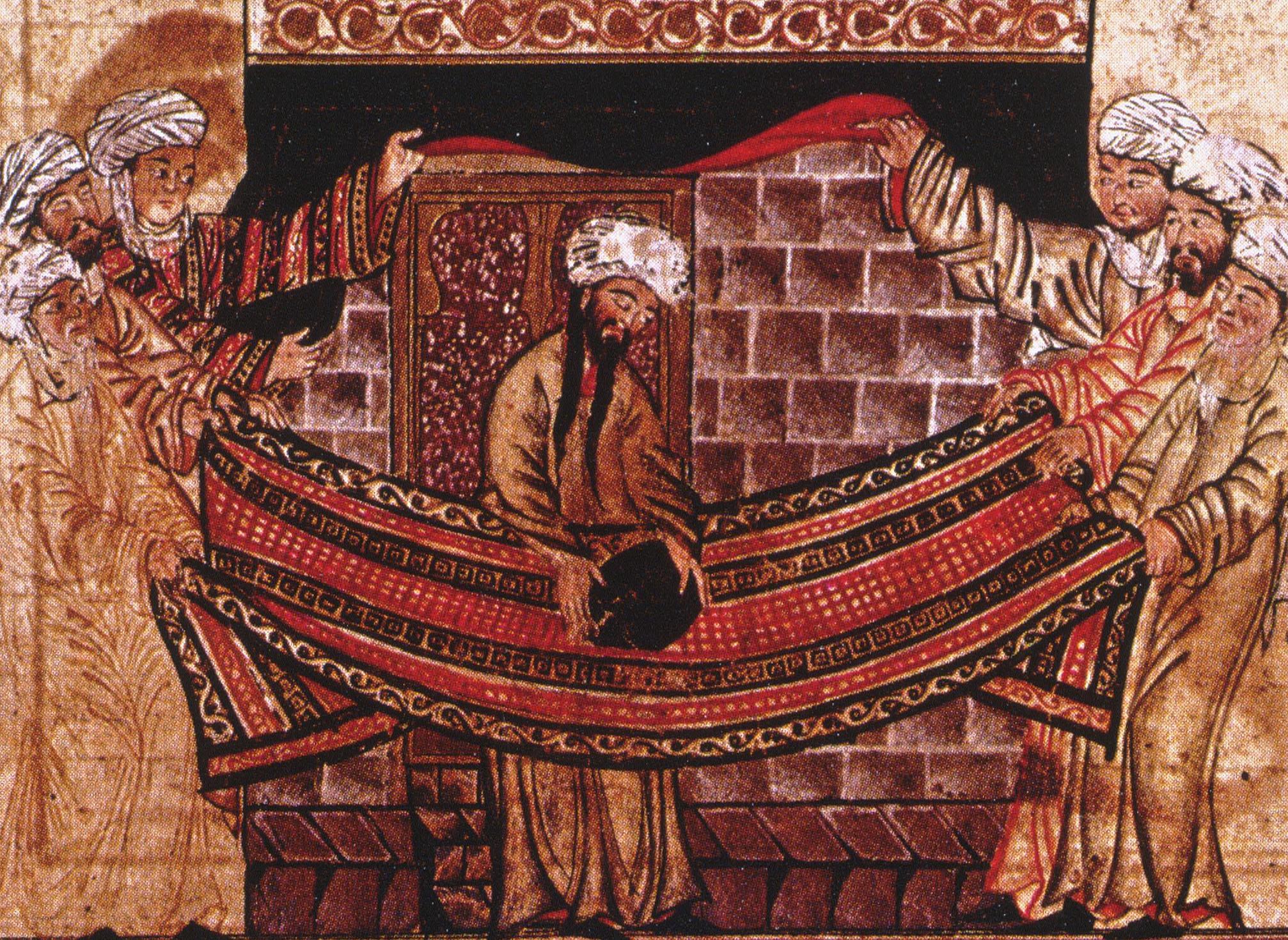
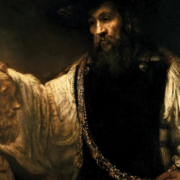
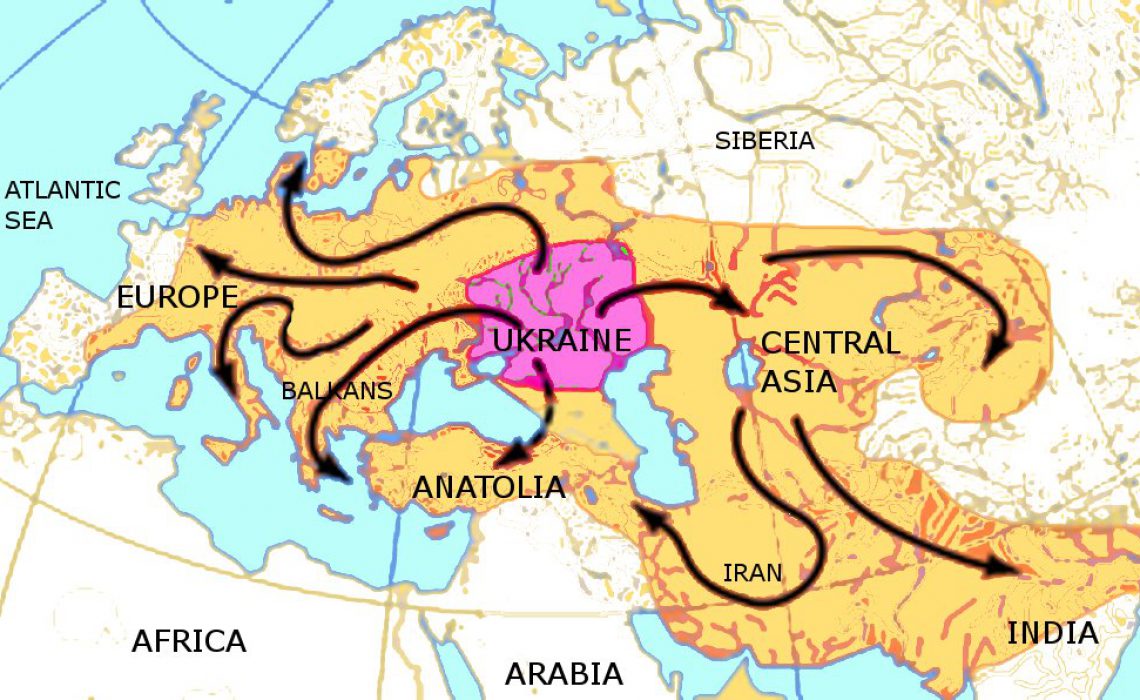

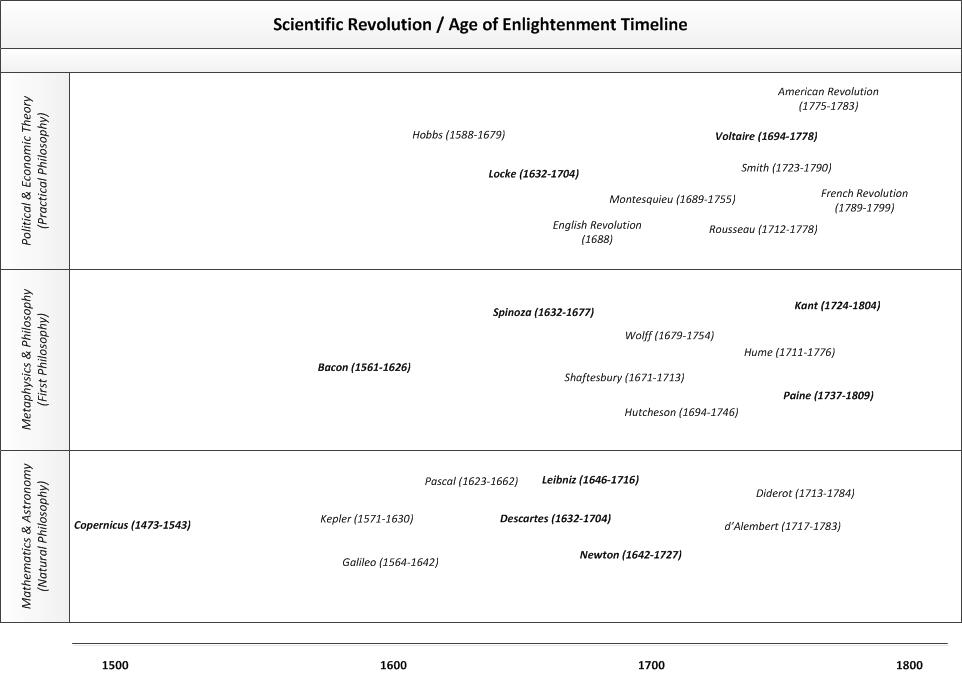

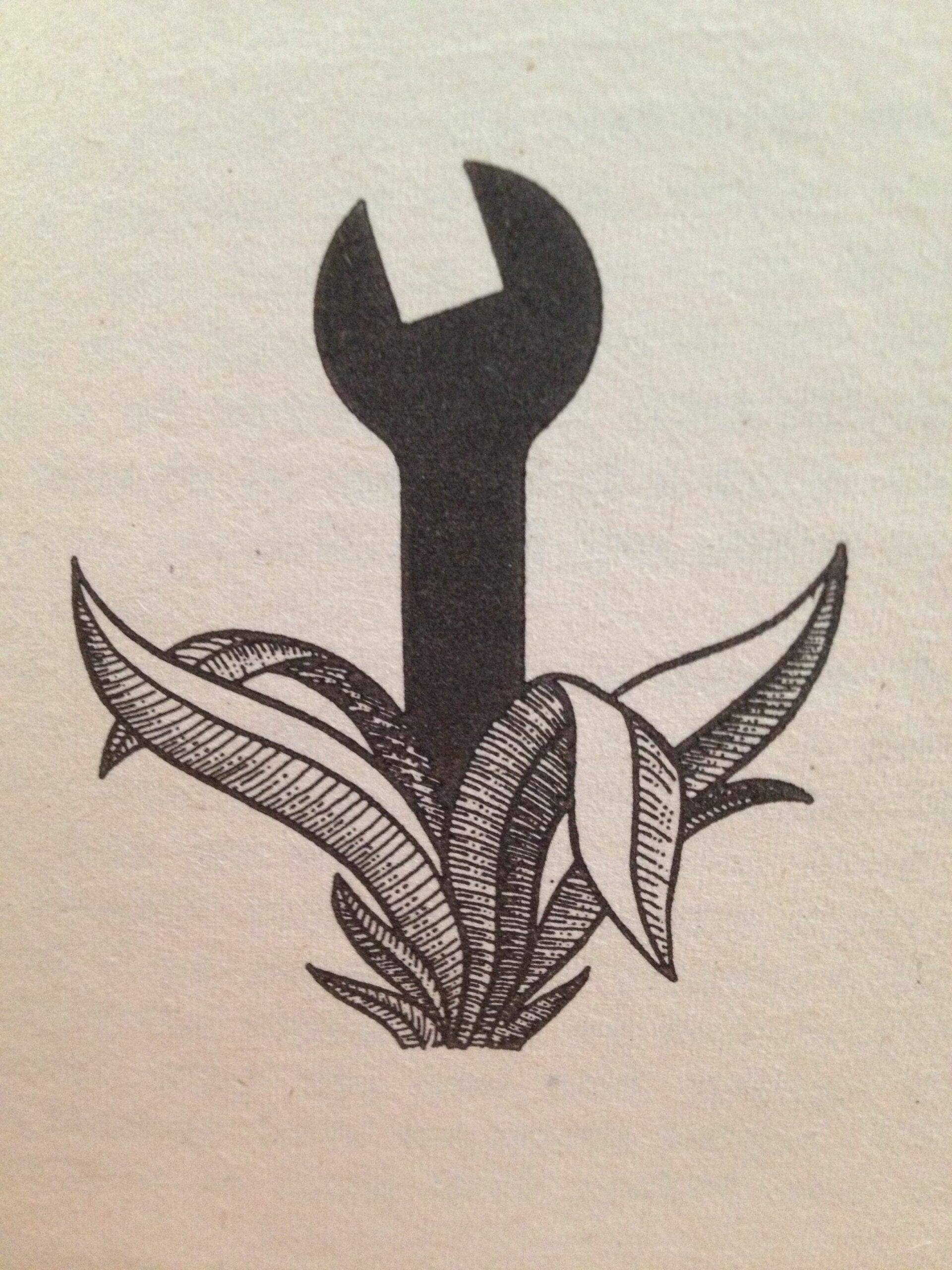


What is, in your opinion, the main difference between Abrahmic religions on one hand and Hindu Buddhist religions on the other hand?
Old Testament and Vedic parallels abound (Yahweh and Indra), both springing from the same root, with the Vedas and Puranas probably the older of the two – Old Testament more developed and shaped over time (by Moses supposedly. As you get into New Testament and Quran world, those systems reflect a different, more modern (less archaic) system of beliefs that solves different, more advanced you might say, sociological challenges.